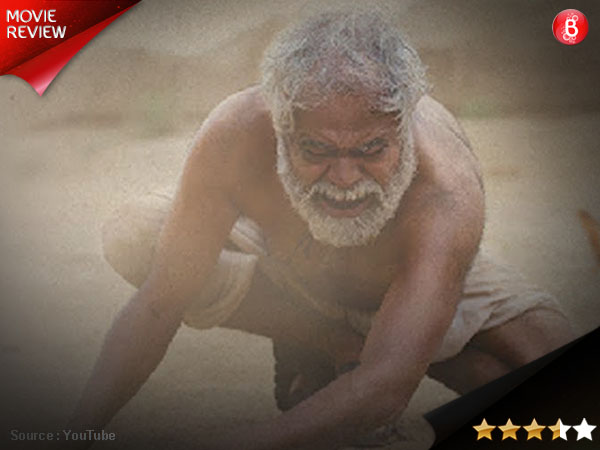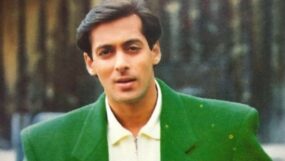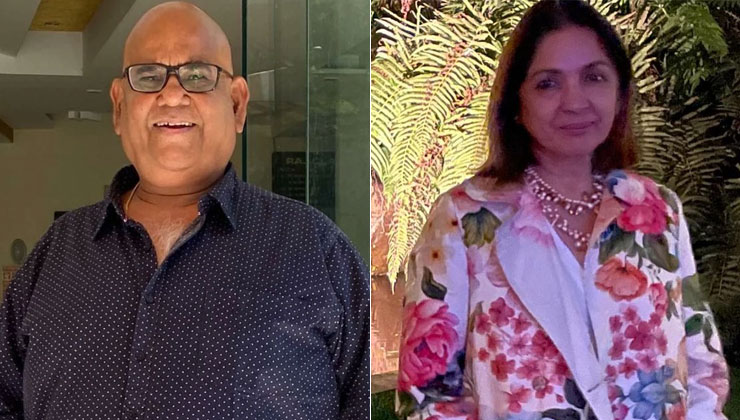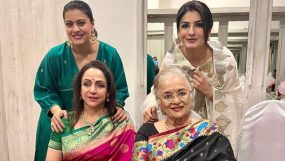
Directed By: Nila Madhab Panda
Produced By: Manish Mundra, Akshay Kumar Parija, Nila Madhab Panda
Cast: Sanjai Mishra, Ranvir Shorey, Tillotama Shome, Bhupesh Singh
Duration: 1 hours 35 minutes
Bollywood Bubble Rating: 3.5/5
Filmmaker Nila Madhab Panda has a propensity of churning out deep, dark, socially untold and relevant topics. An example of his exemplary work can be recalled from the 2011 National Award winning film ‘I Am Kalam’ which tackled the effective topic of education through a small boy’s perspective, the one who seeks inspiration in APJ Abdul Kalam. This time, Panda pulls out a never-attempted-before, yet a grave and dark topic, that of climate change, rightly giving it the title of ‘Kadvi Hawa’.
The movie depicts the times of the winds gone viciously dark, leaving nothing but a drought-inflicted area full of dejected farmers. The story starts off with an old blind man walking through the barren lands of a village and it’s so beautifully shot that you know that this one’s going to be worth your time. Sanjai Mishra plays the character of the blind man named Hedu residing in the drought-stricken Mahua village which hasn’t seen a drop of rain for the past 15 years. His sole purpose in life is to save his son Mukund (Bhupesh Singh) who is gloomy and depressed due to no yields and is suicidal. He fears that just like some other farmers in his knowledge who committed suicide due to inability of repaying their debts, his son too would succumb to the pressure and commit suicide.
The man responsible for these suicides is Gunu Babu (a loan recovery agent) who is quite harsh and ruthless when asking for repayment of loans from the farmers which has earned him the dreaded tag of ‘Yamdoot’. In fact, there is a dialogue in the movie uttered by Hedu, “Tum jab bhi yahan aate ho 4-5 logo ki zindagi saath le ke jaate ho.” However, as mean and menacing as Gunu Babu may seem to be, he too has a grim and helpless past urging him to earn commission to bring his family from the flood-stricken areas of Odisha to Mahua village where there is not an ounce of rainfall. Their paths cross and Hedu and Gunu Babu hatch a plan to save each other from their agonies. Will they be successful in ridding each other of their pains or will they succumb to the nature’s fury is what forms the crux of the story.
Poignant and touching, the movie relies strongly on its narrative, characterisation, background music and the camera angles. Every scene is so emotionally well-crafted that you feel the plight of the suicidal farmers who are helpless for years on end, with their hopes pinned on their crops and the weather. While, the movie strongly reasons out that the bitter winds have played a crucial role in forming these dark situations, it doesn’t give us an answer for why. A classroom scene where the master asks the children to name the seasons and a kid replies that there are just two seasons, summer and winter will touch you deeply and make you realise the hard times that the farmers and villagers staying in drought-inflicted areas go through.
You will deeply sympathise with Sanjai Mishra who perfectly captures the emotions of a helpless blind old man trying to save his son. But, you would also somewhere sympathise with Ranvir Shorey who effortlessly plays out the role of a dreaded loan recovery agent with a murky past. Tillotama Shome as Sanjai Mishra’s daughter-in-law shines through in her miniscule part while Bhupesh Singh as Mukund is heart-wrenching. Ramanuj Dutta’s cinematography is another applause-worthy effort for the movie which will leave with an unfilled void at the end.
On a parting note, there are too many questions and no answers that will trickle your minds as you exit the cinema halls. A deeply earnest effort from the makers which deserves your time and attention.
WATCH TRAILER
























